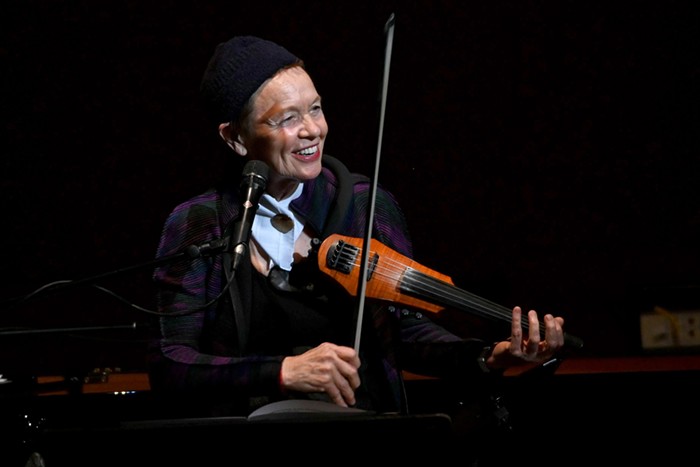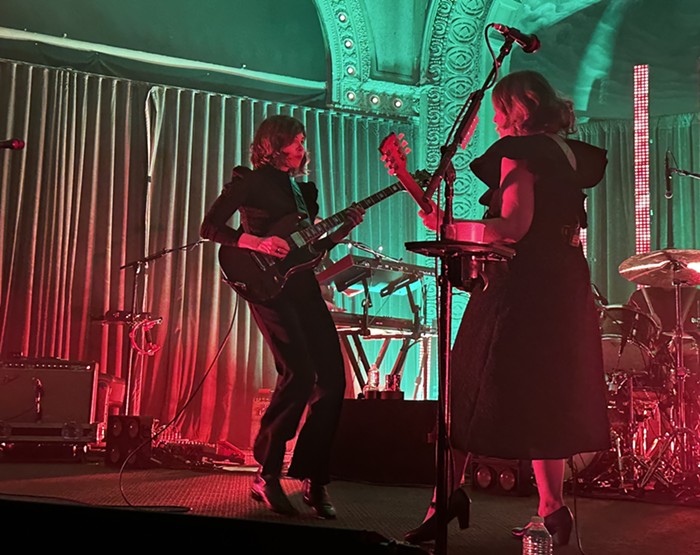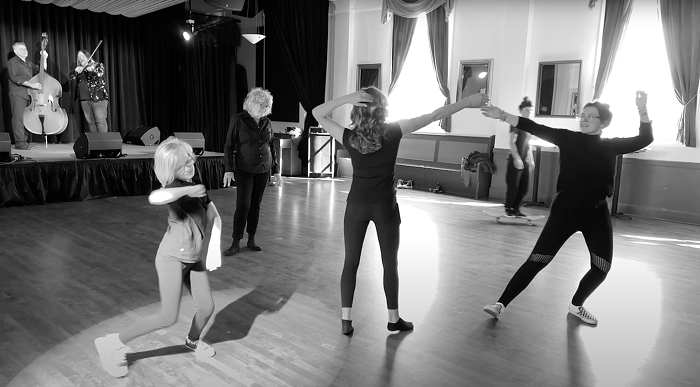LOCH LOMOND MASTERMIND Ritchie Young second-guesses himself most of the time. But on those rare days that bring self-confidence, he writes beautifully emotive folk/rock songs. "I don't know how to do anything else," he said recently by phone, his voice gentle and kind. "I'd rather do what I love and eat Top Ramen with ketchup packets than do anything else. Might as well...." Young adds, trailing off as if lost in thought. His soft-spoken nature and slight indifference explain the wandering, meandering feel of his delicately textured songs. It's obvious that music is his love and, since he was about 16 years old, also his escape.
Young grew up in Bend, among the desert vistas, among the hunters, and among the great expansive outdoors. When he accidentally shot a kid above the eye with a nail gun in wood shop, he found himself grounded for an entire summer. It was then that he discovered an acoustic guitar in his dad's closet, next to a .22, along with a Neil Young tablature book. "So I picked it up and taught myself to play," Young said.
Young moved to Portland in 1997, later hooking up with local rock back the Standard, who would, in 2002, move to the East Coast (Long Island first, then Raleigh, North Carolina) for easier touring and networking. A few years later, Young opted out of the band. "I quit the Standard to work on Loch Lomond," he said. "It's my baby and it was all I was thinking about the whole time so it seemed like what I needed to do."
Local label In Music We Trust Records released Loch Lomond's debut album, When We Were Mountains, in 2003. Recorded on a four-track in Rob Oberdorfer's (of the Standard) basement studio in Northeast Portland, Mountains is a great start, but didn't offer the warm, organic feel Young—vocalist, guitarist and percussionist—was hoping for. "It didn't translate well live," he said.
While Mountains was primarily a solo effort, Loch Lomond's new EP, Lament for Children, reveals Loch Lomond for what it is today: an eight-piece outfit, a full fleshed-out band, string section and all. "We've solidified into a band," said Young. "It's as good as it's ever been. A lot of the members are/were in other bands, so Loch Lomond was always a secondary side project for them," he continued, "but now people are more focused on Loch Lomond and they're taking time to throw themselves into this and really care about the music."
According to Young, "The musicians I play with are my main inspiration. When we play together live—and half or all the crowd is dead silent—the hairs on the back of my neck stand up. I hope people that come to see us can get that same feeling."


















